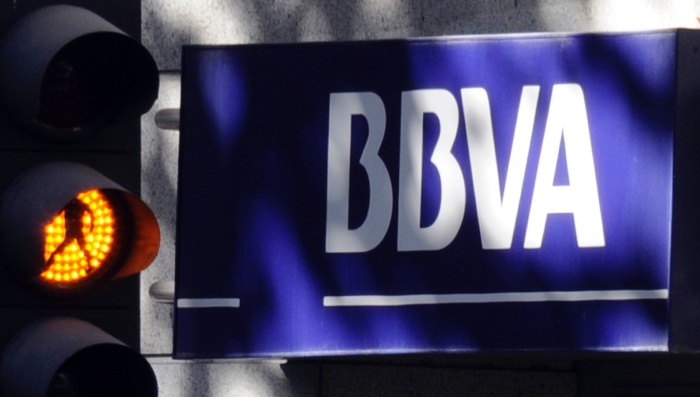Spain’s BBVA is the international lender most exposed to Turkey, deriving a third of its pre-tax profits from a country where the currency is in free fall and inflation is in double digits, Reuters reported on Monday, citing ABN AMRO analysts.
Following June’s snap election, President Recep Tayyip Erdoğan — a self-declared enemy of high interest rates — appointed his son-in-law Berat Albayrak to the post of finance minister.
The move, which exacerbated concerns Erdoğan would seek to exercise greater influence over monetary policy, has driven foreign investors to the exits. The Turkish lira has fallen to record lows this year while borrowing costs have surged.
ABN Amro strategist Tom Kinmonth estimated global bank exposures to Turkey at roughly $225 billion but said “BBVA sits on the frontline of impact.”
“(BBVA) has generated some strong returns from Turkey over the years, and has increased its exposure with an ever increasing stake in the Turkish Garanti Bank,” Kinmonth said, noting that 31 percent of 2017 pre-tax profits had come from operations in Turkey.
“Whichever measure is used, the BBVA exposure to Turkey is hefty,” he added.
In February 2017, BBVA upped its stake in Turkey’s Garanti Bank to just under 50 percent.
During the last week Garanti Bank shares on the İstanbul Borsa lost almost 20 percent of their value, the Hürriyet daily reported.
According to figures from BBVA’s first quarter financial report, Turkey is its fourth-biggest market in terms of net profit after Mexico, Spain and South America — slightly ahead even of the United States. BBVA booked a net profit of 201 million euros ($235.4 million) in Turkey in the first three months of the year compared with 195 million euros in the US.
Kinmonth said BBVA was followed by Unicredit in terms of vulnerability to Turkey, while Dutch financial services company ING, Europe’s biggest bank HSBC and France’s BNP were also exposed.
Turkey had been highly profitable for many foreign banks in recent years, with galloping loan growth and extremely high net interest margins, ABN AMRO said, estimating BBVA’s Turkish loan book had earned a 4.19 percent net interest margin compared with just 1.18 percent in Spain.
Now however, there are fears the economy is overheating and the lira’s 22 percent slump this year is increasing pressure on companies and banks with hard-currency loans as well as foreign entities that are exposed to them.
Credit ratings agencies have flagged the risk to the country’s financial sector — Fitch late last week cut Turkey’s sovereign credit rating deeper into junk and warned of a hit to the banking sector’s performance.
And rival agency Moody’s forecasts problem loans at Turkish banks will increase to more than 4 percent of loans over the next 12 to 18 months, off a low of 2.9 percent in May.
Turkey is unlikely, however, to cause problems to most global banks, the ABN Amro report said, adding that “once the exposures of the aforementioned five banks are excluded, the impact for other European banks is minimal.”

